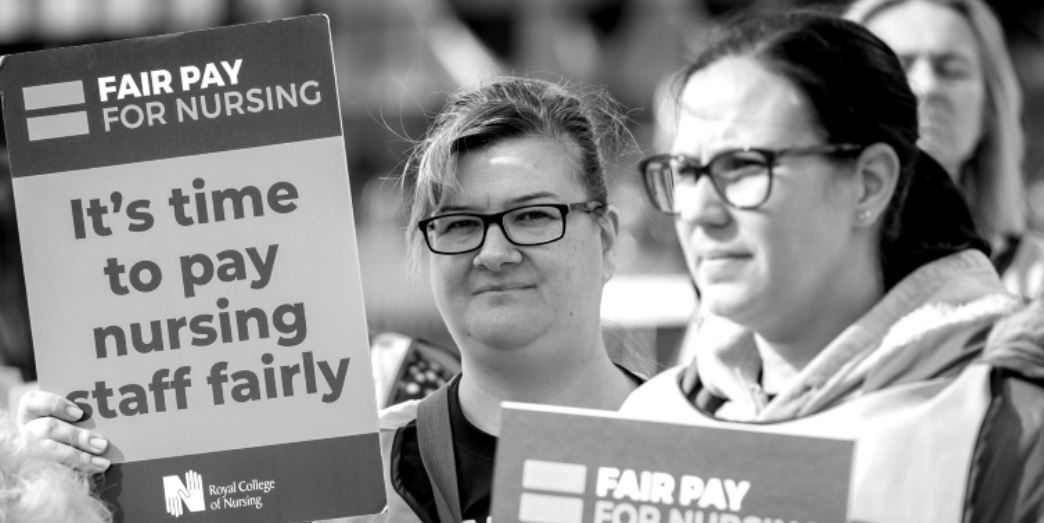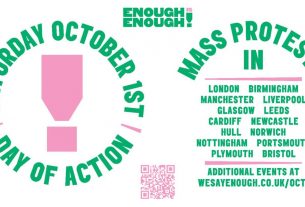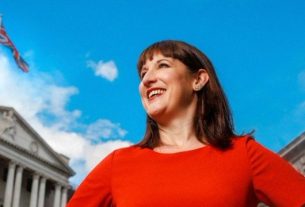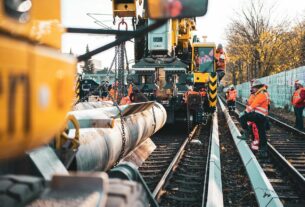The government is holding a Cobra emergency meeting to deal with the wave of strikes hitting Britain across multiple sectors.
Ministers will discuss deploying the military to drive ambulances and civil servants to cover Border Force staff as strikes escalate. Nurses, rail and postal staff are also among workers taking industrial action this month in disputes over pay and working conditions.
Today’s Cobra meeting will be chaired by Cabinet Office minister Oliver Cabinet who blamed the unions for the “disruption for millions of hardworking people over the coming weeks.”
Dowden said the government “will do all it can” to mitigate the strikes, adding “the only way to stop the disruption completely is for union bosses to get back round the table and call off these damaging strikes.”
However, ministers have rejected an offer from the Royal College of Nursing (RCN) – made last Thursday – to suspend their strike action in return for pay negotiations with health secretary Steve Barclay.
RCN strikes offer ‘too good to turn refuse’
The RCN say experienced nurses are now 20% worse off in real terms than they were in 2010. They are calling for a 5% plus-inflation pay award for their members who will strike on Thursday for the first time in their history.
The government’s refusal to negotiate pay and thereby suspend the strike has been condemned by the shadow health secretary Wes Streeting. He said the government’s position is “dangerous” and “irresponsible” and they have turned down an offer to suspend the nurses’ strikes that is “too good to refuse”.
Streeting told Times Radio: “If only the government would be willing to talk and the fact that they are not taking that offer (from nursing leaders), I think it is dangerous. I think it’s irresponsible.
“And I think it just serves to underline the fact that the government is spoiling for a fight with the unions.”
In June, Sir Keir Starmer accused the government of wanting strikes in order to “feed off division” after then transport secretary Grant Shapps refused to meet unions over the rail strile.
Disruption to continue as weather causes travel chaos
Motorists, train and plane passengers face further disruption after snow, ice and freezing fogs caused chaos across the UK.
Yellow weather warnings are still in place for the south east and west of England and parts of Scotland. Temperatures plummeted overnight with -15.6C in Aberdeenshire the lowest recorded on the UK’s coldest night since January 2021.
Serious disruption is expected to continue into Monday with roads, train lines and airports operating under treacherous conditions.
Essential travel only is advised for the south east of England and in Cornwall in the south west. Overnight motorists reported that 45 minute journeys had taken eight hours, with accounts of cars being stranded and abandoned on snow blocked roads.
Drivers have been told to adjust to the conditions and exercise caution with the AA warning “hazards like black ice can prove lethal if you don’t adjust your speed and driving style in colder weather.”
They advise to pack winter essentials, including warning lights and extra clothing, and to allow extra time for journeys.
Trains have faced delays and cancellations around the country while Stansted airport suspended all flights as its runaway was blanketed by snow. Freezing fog and ice saw flights cancelled at Heathrow and Gatwick and disruption is expected to continue for travellers.
A spokesperson for Stansted said delays were caused by de-icing aircrafts while flights were suspended to clear their only runway.
Heathrow cancelled 50 flights when freezing fog triggered air traffic control restrictions limiting the number of landings and take-offs per hour.
Heathrow’s biggest airline, British Airways expects more disruption after being informed of more restrictions on Monday (Dec 12).
Passengers are advised to check with their airline for the current status of their flights before travelling to the airport.




